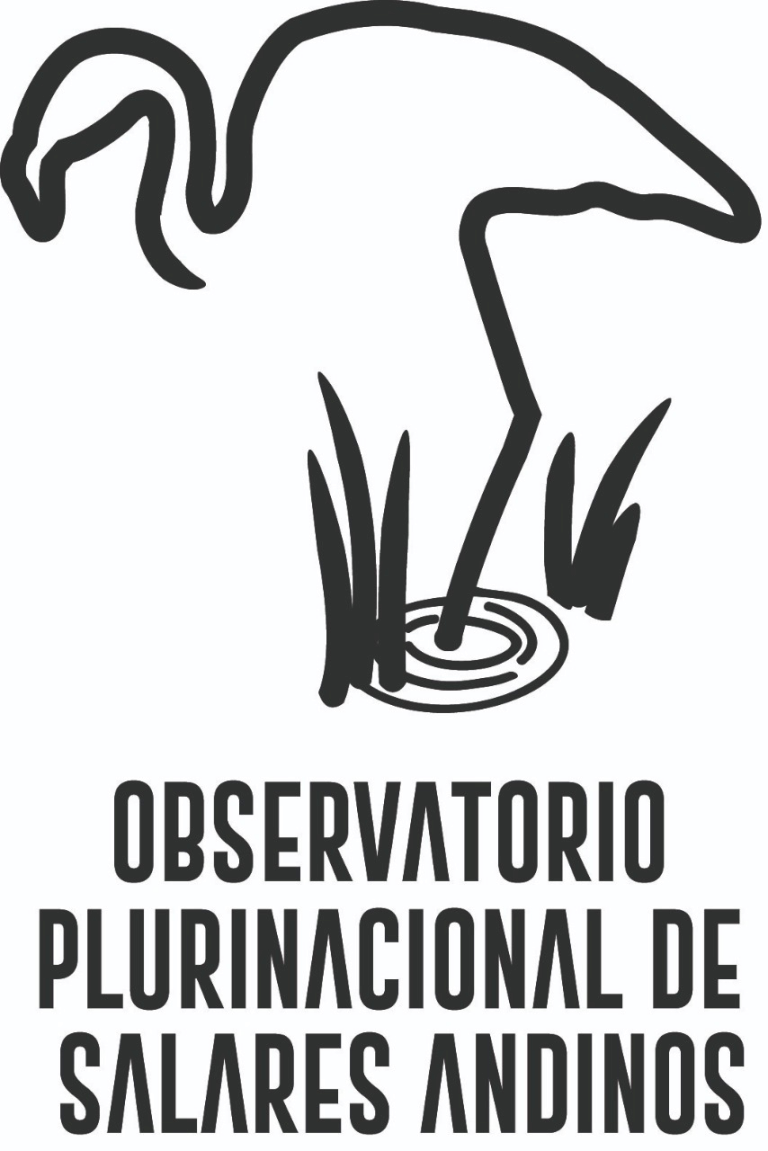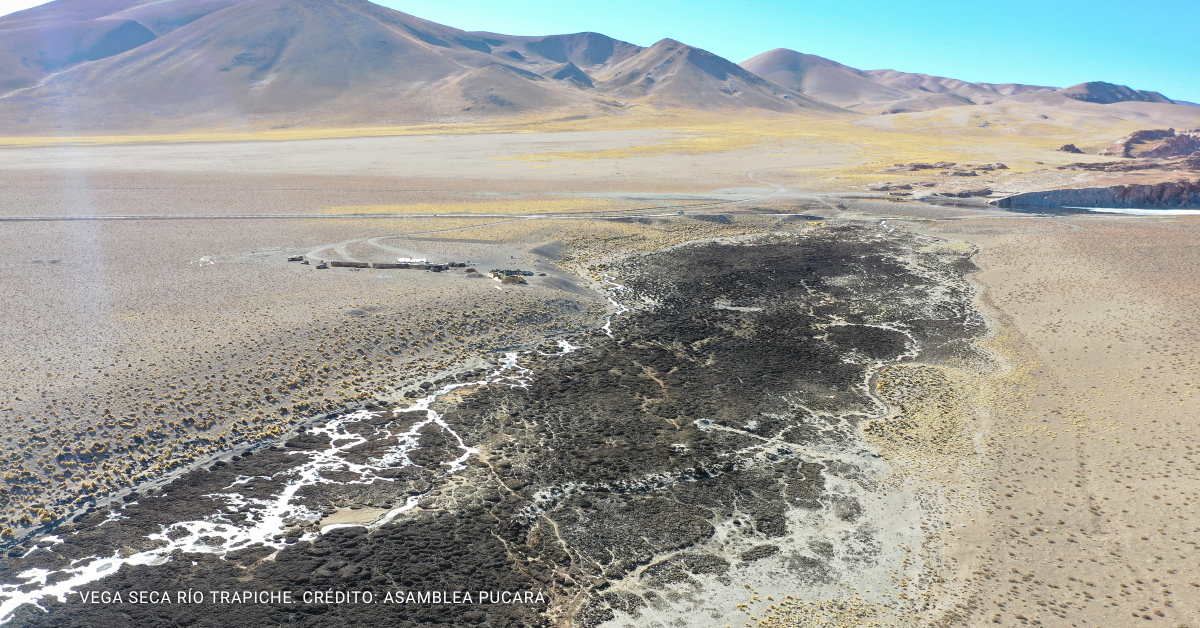The Argentine Court of Justice ruled on the damages of lithium extraction in the Los Patos River area and in Salar del Hombre Muerto, in the framework of an injunction requested by the Atacameños del Altiplano Community. The ruling orders the Ministries of Mining and of Water and Environment to refrain from granting permits and authorizations for exploitation until a «comprehensive and cumulative» environmental impact study is carried out.
The Court of Justice of Catamarca, a province located in northwestern Argentina, partially upheld the environmental protection action filed by the Atacameños del Altiplano Indigenous Community. The legal instrument, filed in 2021 by the chief Román Elías Guitian, requested that the province of Catamarca be ordered to revoke the decrees and ministerial resolutions that authorized the mining projects Ampliación de Proyecto Fenix (Amplification of Project Fenix), of the company Livent (Minera del Altiplano SA), the Sal de Vida project, of Galaxy Lithium SA and any other lithium project located in the Salar del Hombre Muerto sub-basin in Catamarca.
The «partial» nature of the resolution is related to the fact that -strictly speaking-, the suspension of the mining activity was not ordered, but the Ministry of Mining of the Province of Catamarca was ordered to carry out «a cumulative and integral environmental impact study of the development of the mining activity (lithium), which must deal with the cumulative environmental impact on the Los Patos River – Salar del Hombre Muerto – Dpt. Antofagasta de la Sierra, on the landscape, the fauna and flora of the place, the climate and the environment in general, as well as the living conditions of the inhabitants of the place and of the affected indigenous community».
Furthermore, the sentence orders the Ministry of Mining of the Province of Catamarca and the Ministry of Water, Energy and Environment «to refrain from granting new permits/authorizations, or environmental impact statement with respect to works or activities in the Los Patos River – Salar del Hombre Muerto».
In addition, it echoed the call of attention from the chief Román Guitian, to the lack of adequate consultation and information processes for the communities whose economic and cultural activities depend on the affected ecosystems. It was indicated that «the Atacameño del Altiplano aboriginal community and the members of the affected locality, Antofagasta de la Sierra, should be given free access to information and consequent participation».
Verónica Gostissa, member of the Pucará -Pueblos Catamarqueños en Resistencia y Autodeterminación – Assembly and OPSAL coordinator in Argentina, explains that
“what this ruling does is to put a limit on a situation that was absolutely irregular, illegal and unbridled; what we celebrate is a historic milestone and a precedent for the entire region. This is a case that took us 4 years, a path that involved administrative inquiries, persecutions, repression, arrests and a lot of institutional violence, so the path to reaching this resolution was very costly.”
Environmental impact on the Trapiche River
The resolution recognizes the damage that Project Fénix of the Livent company has caused in the Trapiche River during the more than 25 years that it has been exploiting the territory. The ministers indicate that «the environmental damage to the Trapiche River has been confirmed. It arises from the authorizations granted to the mining project Fénix to build a water dam to capture water from the Trapiche River and use it in its production. There is alteration to the river and the ecosystem of the area due to the non-existence of a water source – due to its drought as a direct consequence of the development of the mining activity and which is in the process of restoration, report provided by the Provincial Directorate of Mining Environmental Management». According to Román Guitian, chief of the Atacameños del Altiplano community and member of OPSAL, «the damage is mainly to the river and the meadows that the Livent company have dried up, leaving 7 kilometers of meadow in total drought, without life. That is why we took this precautionary measure, to prevent the drying up of another valley that is in danger, which is where I live, where I graze my sheep, my llamas. If the mining companies consume the water from that valley, unfortunately it will dry up.
It should be noted that in 2022 Livent carried out an audit process for its lithium operations in the Salar del Hombre through IRMA (Initiative For Responsible Mining Assurance), an certification scheme that establishes international standards for the so-called Responsible Mining, which are defended by the extractive industry and other corporate sectors as the most rigorous set of standards to evaluate performance in terms of environmental management, labor practices, human rights, health, safety and interests of the communities. This initiative has been categorically rejected by the territorial authorities with a communiqué in November 2022. (1)
The resolution also notes the existence of 6 mining projects for the extraction of lithium – which are Fénix, Sal de Vida, Sal de Oro, Virgen del Valle Litio, Candelas, Candelas Oeste, all located in the Río de Los Patos Basin. It is noted that «all mining projects, in their different stages, affect the same area, and there are no actions tending to the environmental impact study in a comprehensive and cumulative manner, as required as a minimum environmental baseline, in order to know the real and potentially risky or harmful situation».
For Verónica Gostissa, “this ruling is a very important milestone, due to the arguments it provides in both environmental and legal terms. It is the first time that a government has been ordered to carry out a “cumulative and comprehensive” environmental impact study. It is something absolutely new and necessary because in the Salar del Hombre Muerto there are more than 7 lithium projects simultaneously requesting brine and fresh water.”
Through a statement published in social networks by Asamblea PUCARA-Pueblos Catamarqueños en Resistencia y Autodeterminación (Assembly PUCARA – Catamarcan Peoples in Resistance and Autodetermination), the inhabitants of the territory expressed that, «the company LIVENT completely dried up the Trapiche river plain for the exploitation of lithium, and today the same company together with 7 other projects is extracting water from the Los Patos river».
The sentence of the Court of Justice of Catamarca sets a precedent regarding the protection of ecosystems affected by extractivism, especially because it establishes the need to carry out a measurement of the damages caused that considers the cumulative nature of the impacts, establishing the order to carry out a «comprehensive and cumulative» study. «This is a triumph for the communities and for all life that inhabits the salt flats, which are wetlands, which are hope and life support», ends the public statement of the Catamarcan peoples.
(1) – SEE: Communiqué rejecting the IRMA certification process for the company Livent. Lithium mining is unsustainable and causes ecocide in our territories. Antofagasta de la Sierra, November 30, 2022
References:
https://www.pagina12.com.ar/720777-la-corte-de-justicia-ordeno-detener-la-explotacion-de-litio-
https://mapa.conflictosmineros.net/ocmal_db-v2/proyecto/view/201
https://lapoliticambiental.com.ar/contenido/2517/catamarca-comunicado-indigena-atacamenos-del-altiplano-rechazo-al-proceso-de-cer

